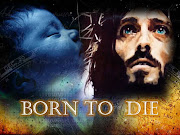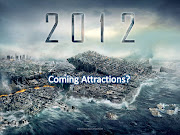
Many are familiar with Mark Twain’s classic The Prince and the Pauper, the fanciful story of two sixteenth-century boys who exchange identities. This month A.D. 2018 picks-up on a mistaken identity theme at Christmas, revealing an inscrutable God who invades time and space, condescending to take on human form, under the most humble of circumstances.
Caught between two advents, scholars of old expected a prince arrayed in splendor, and looked beyond a pauper born in a manger. Conversely, 2,000-years on we’re fond of reminiscing over the babe in swaddling clothes, while overlooking the mission accomplished by the Prince of Peace.
This Christmas we shake your tree at little by inviting you to take a closer look at the great exchange, where divinity wrapped Himself in humanity. The Lord became mortal, to grace us with immortality. He became poor, that we might become rich. Sojourn with us as "wise men" this year, to enter into His presence.
Our Musical Greeting Card To You...
From our family to yours...Merry Christmas!
“Therefore, when He came into the world, He said: “Sacrifice and offering You did not desire, but a body You have prepared for Me. In burnt offerings and sacrifices for sin You had no pleasure. Then I said, ‘Behold I have come—in the volume of the book it is written of Me—to do Your will, oh God.’” (Hebrews 10: 5-7)
I envision a farewell that must have taken place in heaven on the first Christmas Eve. As mentioned in the opening verse, I imagine the Son would have said good-bye to the Father and the Father to the Son. The Scripture gives us a remarkable look at the heart of the Savior before His birth.
He knew He was entering the world to be the final and ultimate sacrifice for sin. God had divinely prepared His body specifically for that purpose. Jesus was going to die for the sins of the world, and He knew it. Moreover, He was doing it willingly. That was the whole point of the incarnation.
The important issue of Christmas is not so much that Jesus came, but why He came. There was no salvation in His birth. Nor did the sinless way He lived have any redemptive force of its own. His example, as flawless as it was, could not rescue men from their sins. Even His teaching, the greatest truth ever revealed to man, could not save us from our sins. There was a price to be paid for our sins. Someone had to die, and only Jesus could do it.
Jesus came to earth, of course, to reveal God to mankind. He came to teach the truth. He came to fulfill the Law. He came to offer His kingdom. He came to show us how to live. He came to reveal God’s love. He came to bring peace. He came to heal the sick. He came to minister to the needy.
But all those reasons are incidental to His ultimate purpose. He could have done them all without being born a human. He could have simply appeared—like the angel of the Lord often did in the Old Testament—and accomplished everything in the above list, without becoming a man. But He had one more reason for coming: He came to die.
Jesus’ death, though devised and carried out by men with evil intentions, was in no sense a tragedy. In fact, it represents the greatest victory over evil that anyone will ever accomplish. As for why it was necessary, allow me to make just three simple points:
First, the Creator brought everything into existence for the express purpose of engaging us in an intimate relationship for eternity. The magnanimous love He has for us all, and the love He expects in return, has one requirement though. To be reciprocated it requires an act of the will.
Second, human nature’s proclivity for imperfection separates us from the presence of the Creator’s infinite holiness—by our choice. Since perfection and imperfection will never peacefully coexist, we must either secure atonement for our sinfulness or perpetually remain estranged from the Author of life.
Third, because extricating ourselves from the fallen nature and expunging our own record is not possible, God did something for us that we could never achieve on our own. He fashioned a body uncorrupted by sin to be sacrificed on our behalf, in order to make amends for the imperfection of humanity.
Take another look at the manger this Christmas. Look beyond the tender scene, and see what Jesus Himself knew even before He came—that He was born to die.
Roy J. Tanner
Essay uses content excerpted from John F. MacArthur, Jr.,
God With Us: The Miracle Of Christmas (1989)
 Ever been late with gifts, or sending out greeting cards? Or if you’ve ever received a “return to sender” notice from an invalid address -- then take heart; you’re in good company. The famed “wise men” that we hear about every Christmas also had a knack for miscues when it came to timing and destinations. For all their knowledge, the wise men or magi, apparently arrived as late as two years after the birth of the Christ child, eventually locating Him, only after inquiring of King Herod regarding His whereabouts.
Ever been late with gifts, or sending out greeting cards? Or if you’ve ever received a “return to sender” notice from an invalid address -- then take heart; you’re in good company. The famed “wise men” that we hear about every Christmas also had a knack for miscues when it came to timing and destinations. For all their knowledge, the wise men or magi, apparently arrived as late as two years after the birth of the Christ child, eventually locating Him, only after inquiring of King Herod regarding His whereabouts.The ancient Greek historian Herodotus records that the magi were a priestly caste of the Medes. They were active throughout Babylonia and Mesopotamia during much of the Old Testament era. They acted as advisors to kings, interpreting dreams and otherwise divining wisdom through their occult magic. They also helped settle questions of science and law (from which the word magistrate is derived). As contemporaries of the prophet Daniel, the magi gained a great deal of familiarity with Jewish Scripture--including prophecy regarding the messiah.
As God would have it, the signs in the Scriptures and the heavens eventually led them to Jesus. Upon seeing the child, their response indicates they became the earliest Gentile believers in Christ, where they worshipped in His presence. They also offered gifts of special significance: gold in tribute to the King of kings, frankincense to worship the eternal High Priest, and myrrh for the Savior who would suffer for the sins of humanity (Matt 1:21). More than sentiment, this ancient story also has application for each generation--in the midst of our own life stories.
In a phrase, “late and lost” certainly described my spiritual condition before my journey led me to the Savior. At 33, my appointment with destiny occurred later than I anticipated and happened in a place I didn’t expect. Although raised in the traditions of the faith, my wanderlust of youth confused life’s priorities and squandered many gracious opportunities. Ironically though, the zeal I have now for things eternal--seems to be in direct proportion to the forgiveness I’ve received in my life.
Everyone has his or her own story. Can you recall a time and place that you experienced the forgiveness found only in the “Prince of Peace” (Isa 9:6)? Are you aware that right now, wherever you happen to be, God continues to extend salvation to us (2 Cor 6:2)? Destiny portends, that like the wise men, when you happen onto the Lord Jesus, your heart’s desire will also manifest trust in the atoning work of the Savior, worship for the Son of God, and service to the King of kings.
Like an intricate tapestry, that appears a haphazard patchwork underneath, many times the beauty of life’s patterns can best be seen from heaven’s perspective. It is my sincere hope, that sometime during your spiritual journey, regardless of seemingly errant timing or destinations, you also will be “found” in that vast number of souls who have placed their trust in the Lord for their salvation.
"But as many as received Him, to them He gave the right to become children of God, to those who believe in His name: who were born, not of blood, nor of the will of man, but of God.” (John 1:12-13)
Roy J. Tanner
"Let not your heart be troubled; you believe in God, believe also in Me. In my Father's house are many mansions; if it were not so, I would have told you. And if I go and prepare a place for you, I will come again and receive you to Myself; that where I am, there you may be also." (John. 14:1-3)
"For the Lord Himself will descend from heaven with a shout, with the voice of an archangel, and with the trumpet of God. And the dead in Christ will rise first. Then we who are alive and remain shall be caught up together with them in the clouds to meet the Lord in the air. And thus we shall always be with the Lord. Therefore comfort one another with these words." (1Thes. 4:16-18)
God has put eternity into the hearts of men (Ecc. 3:11), as evidenced by the abundant speculation about the afterlife. But why be concerned with ages to come and worlds unknown, when there are so many pressing issues to contend with in the here and now? Without losing our current focus, it's because mankind was created to live forever--that there's an insatiable curiosity about the hereafter.
In the movie Gladiator, General Maximus rallied his troops with, "What we do in life echoes in eternity." This tagline has the ring of truth, even if the comparatively few years we spend on earth will pale in significance to an unending eternity. As such, every person should pause and examine life in the light of this "blessed hope." For Christians, "eschatology," or the "doctrine of last things," can be a powerful factor in shaping our present conduct, and motivating service for God and man. [1] In this regard, we've been given considerable insight into what the future holds.
With predictive prophecy comprising fully one quarter of Scripture, the Bible stands alone as divinely inspired--as only God knows the end from the beginning (Isa. 46:9,10). From God's eternal vantage point, prophecy is merely history provided in advance. The prophetic passages like the ones above (along with 1 Cor. 15: 51, 52) support the Biblical basis for what's referred to as "the Rapture" of the church. This event includes complete transformation (Phil. 3:20, 21) and union with the Lord Jesus Christ that never ends.
Occurring at a time different from the coming of Christ in judgment, the Rapture has been described as pre-tribulational. Those who are left behind, having not previously placed their trust in Christ as personal Lord and Savior, will face an increasingly horrific seven-year interim period that's punctuated by persecutions, wars and natural disasters--of a type never before experienced on earth. Feeling vulnerable? While God wants all of mankind to be saved from this fate, justice will ultimately be visited on those not under grace.
Many have asked, "When is Christ expected to return?" While the Lord's return for His Church could happen at any time (i.e. doctrine of imminence), specific estimates may be relative to our culture. For example, 2009 on our Western calendar is also the year 4707 for the Chinese, and 5770 for the Jews. [2] Most people also don't realize that the West has not kept an unwavering record of time. Anyone wanting to chart, 100 BC to 2000 AD for example, would have to contend with the fact that 46 BC was 445 days long, there was no year 0 BC, and in 1582 we switched from Julian Years (360 days) to Gregorian (365 days).
Because most prognosticators are not aware of all of these errors, their math is immediately off by several years. But when it comes to knowing the general time frame of Christ's return for His Church, the Word of God is more generous. Jesus forewarned us of a number of events that will take place prior to His return. When we see the predicted events coming together, we can conclude that time is short (Mark 13:30). Most of these prophecies will take place during the tribulation. So any forewarning of their arrival, would make the Rapture all the more likely because it will occur before the start of the seven-year tribulation period. [3]
More specific estimates of the Lord's second coming rely upon a determination of both: a basis year, which initiates a predetermined countdown, and the length of a generation. One compelling theory suggests that we look to the year 1917 (with the signing of the Balfour Declaration), which coincided with international support for founding the State of Israel. To 1917 then add a 50-year jubilee increment (Lev. 25:11) to get to 1967, where history records that the Six-Day Arab-Israeli War resulted in the Jewish control of Jerusalem. If we use 1967 as our basis year, another jubilee increment takes us to 2017--suggesting the rapture event would occur before 2010 (by subtracting a 7-year tribulation).
Approximating a biblical generation of 50-years can also be supported through simple extrapolation. By dividing the historical period from Abraham to Christ by 42 generations (see Matt. 1:17), we come up with roughly 52-year increments. I also find it interesting that even the ancient Mayans approximated generational epochs of this duration. And although I put no real credibility in the calendars of pagan societies, mysteriously the ancients also reckoned the end of recorded history--in our generation.
Ultimately, the Lord tells us that we cannot know the day or the hour, however He does expect us to be mindful of signs of the times (Matt. 16:3), and to look for His appearing (Matt. 24:42). With this in mind, by my basis of estimate, the Rapture is very near. Starting with the fulfilled prophecy of Israel being re-established as a nation (occurring in 1948), I add the relative length of a generation (e.g. 70 years), and then subtract a tribulation period (i.e. 7 years)--leaving a not to exceed date approximating 2011.
If we are the rapture generation, then anytime between now and the next 2-years, in a moment's notice, believers will be transformed. Whether the events that have transpired in this generation--Israel's re-gathering, the revived Roman Empire (i.e. European Union), the Middle-East Road Map, etc.--are prophetic triggers [4] or not, this much we know for sure..."now is the time of God's favor, now is the day of salvation" (2 Cor. 6:2).
By the way, the admonishment to act "now" acknowledges the brevity of life and the closing window of opportunity for accepting God's offer of salvation--by grace through faith in Christ. This passage also represents an aspect of biblical prophecy that deals more with forth-telling (i.e. proclaiming truth) than foretelling (i.e. describing a future event).
Inspired, prophetic foretelling ended with the Revelation (e.g. at the closing Canon). However, prophetic forth-telling continues throughout Christendom today, pastor to congregants, believer to seeker--everytime we espouse biblical precepts and principles that govern our faith and practice. So while knowing the exact timing of foretold events is exclusively reserved for the Almighty, you and I are expected to be about the business forth-telling in the here and now.
And frankly, something of the prophet in me wants to emphasize to others that life is short and unpredictable (Jam. 4:14). So if you have a talk to give, a message to write, or a song to sing for the Lord--we are to fulfill our individual missions before the dispensation of grace draws to a close. The catastrophic events recently in the news remind us of how fragile and uncertain this life can be. And a simple glance in the mirror affirms that time marches on.
Either at the Rapture or the end of this mortal life, we all have an appointment to keep with the Lord (Heb. 9:27). And the apostle Paul captured the sense of urgency that we should make our own in these last days when he penned, "...understanding the present time. The hour has come for you to wake up from your slumber, because our salvation is nearer now than when we first believed" (Rom 13:11).
Roy J. Tanner
1) All the Doctrines of the Bible, Lockyer
2) http://webexhibits.org/calendars/calendar.html
3) http://raptureready.com/ (James)
4) http://www.harpazo.net/news.html





















